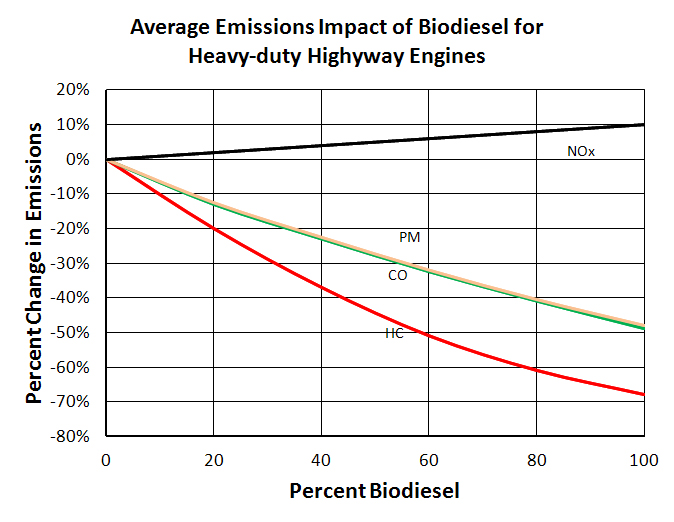Biodiesel Vehicle Emissions
When used as a vehicle fuel, biodiesel can offer considerable emissions benefits. Improved emissions performance in today's diesel vehicles are the result of sophisticated engine controls and exhaust aftertreatment devices. All engines must meet the same tailpipe emissions standards, regardless of fuel type, as defined by the U.S. Environmental Protection Agency.

Life Cycle Emissions
Life cycle analysis is a technique used to assess the environmental impacts of all stages of a product's life, including raw material extraction, processing, manufacturing, distribution, use, and disposal or recycling. When comparing fuels, a life cycle analysis may focus on particular portions of a fuel's life cycle, such as from extraction-to-use or well-to-wheels, to determine the merits or problems associated with each fuel.
Life cycle analysis completed by Argonne National Laboratory found that emissions for 100% biodiesel (B100) are 74% lower than those from petroleum diesel. The California Air Resources Board has reported similar values for its life cycle analysis of biodiesel from various sources.